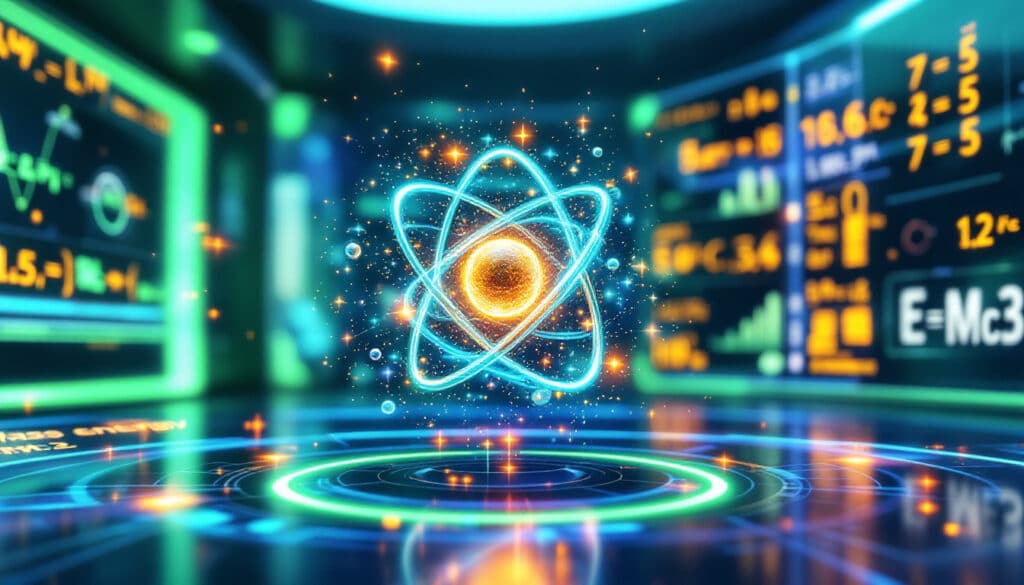Mass energy plays a crucial role in the physical transformations of matter, consisting of the amount of energy required for one kilogram of a substance to change from one state to another. Each chemical species has its own value of mass energy of state change, whether it is melting, solidification, or vaporization. This concept is also closely related to the mass energy density, which expresses the ratio of energy to mass of the matter. Understanding mass energy allows us to grasp the various thermal processes and to model the transitions between states of matter effectively.
Mass energy is a fundamental concept in physics, referring to the amount of energy exchanged per unit of mass in various physical processes. Whether during a change of state like melting, vaporization, or solidification, mass energy plays a central role and offers a deep understanding of the transformations that occur at the atomic and molecular level.
The mass energy of state change is the amount of energy needed for one kilogram of a substance to change state. Whether it is melting (the transition from solid to liquid) or vaporization (the transition from liquid to gas), this energy must be either absorbed or released by the matter. Each chemical species possesses its own mass energy of state change, which makes it a unique characteristic for each studied material.
A concrete example is the mass energy of fusion, which describes the thermal energy required to transform one kilogram of a pure substance from solid to liquid state. It is a crucial measure when considering materials like ice, where the energy necessary for melting must be precisely calculated for practical applications, such as cooling.
In terms of density, mass energy density is defined by the quotient of total energy E over mass m of the matter that stores this energy. This helps understand how much energy is retained in a unit mass, which is essential for the analysis of energy systems and materials.
To successfully conduct energy balances on a system, mass energy is a key component. A specific heat capacity, denoted by c, is often used, representing the amount of heat needed to raise the temperature of one kilogram of a given body by 1 degree Celsius. This measure is crucial in sectors like the development of more efficient heating and cooling systems.
Mass heat, or specific heat capacity, is closely related to mass energy. It expresses the ability of a substance to absorb or release heat, helping to understand how materials can store or conduct heat in different environments.
In modeling and analyzing the physical transformations of matter, mass energy is integrated to simulate how a substance behaves during state transitions. This modeling takes into account the inputs and outputs of mass, ensuring precise balance according to the conservation laws of matter and energy.
Finally, the in-depth study of concepts such as the mass energy of solidification of water makes it possible to calculate the heat necessary to freeze water. Knowing these values is crucial in sectors that require strict management of temperatures and states of matter, such as in food preservation or natural air conditioning systems.

FAQ about Mass Energy
Q : What is the mass energy of state change?
A : The mass energy of state change is the amount of energy required for one kilogram of a substance to change from one physical state to another. It is specific to each chemical species.
Q : How is the mass energy density defined?
A : In physics, mass energy density is the quotient of the total energy E of a substance divided by its mass m. It measures the amount of energy stored or deposited per unit mass.
Q : What is the mass energy of fusion?
A : The mass energy of fusion is the thermal energy exchanged by one kilogram of a pure body during its fusion. It allows changing the state from solid to liquid.
Q : What is mass heat or specific heat capacity?
A : Mass heat (or specific heat capacity) represents a substance’s ability to absorb or release heat per unit mass.
Q : How do you conduct a mass and energy balance?
A : The mass balance stipulates that the mass of matter entering a stage equals that leaving it. For a system, energy exchange and transformation are also considered.
Articles similaires
Thank you!
We will contact you soon.













